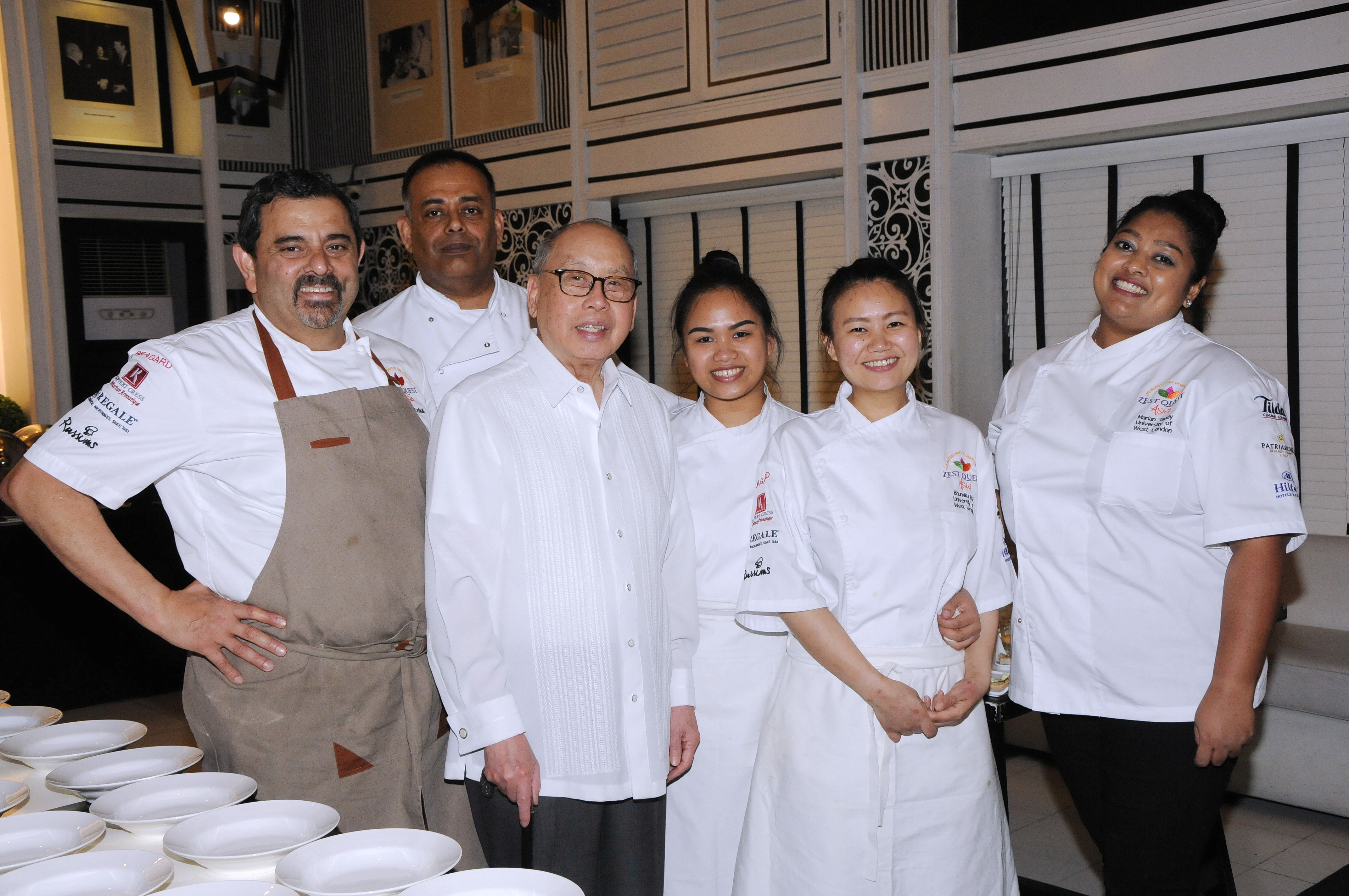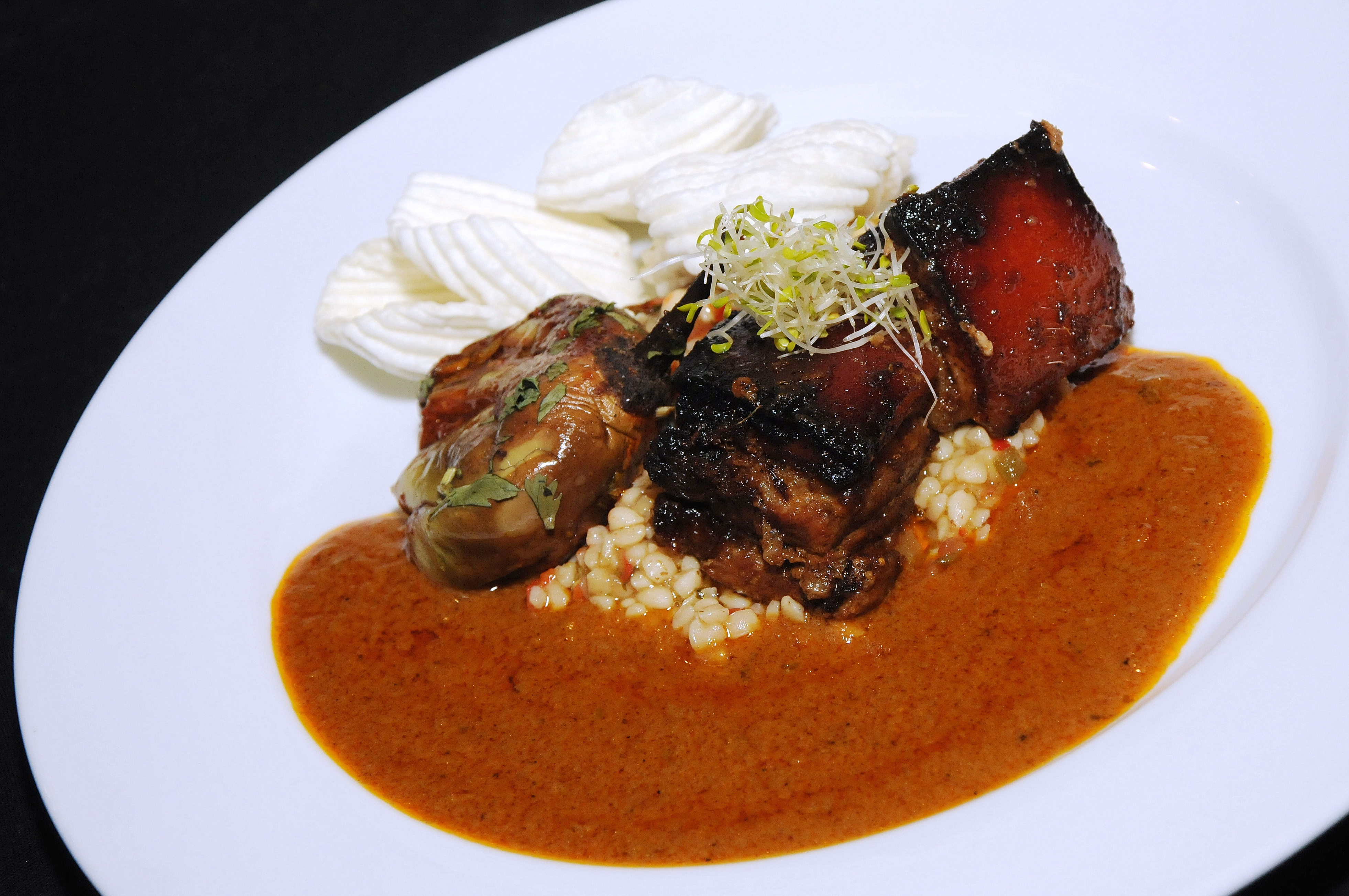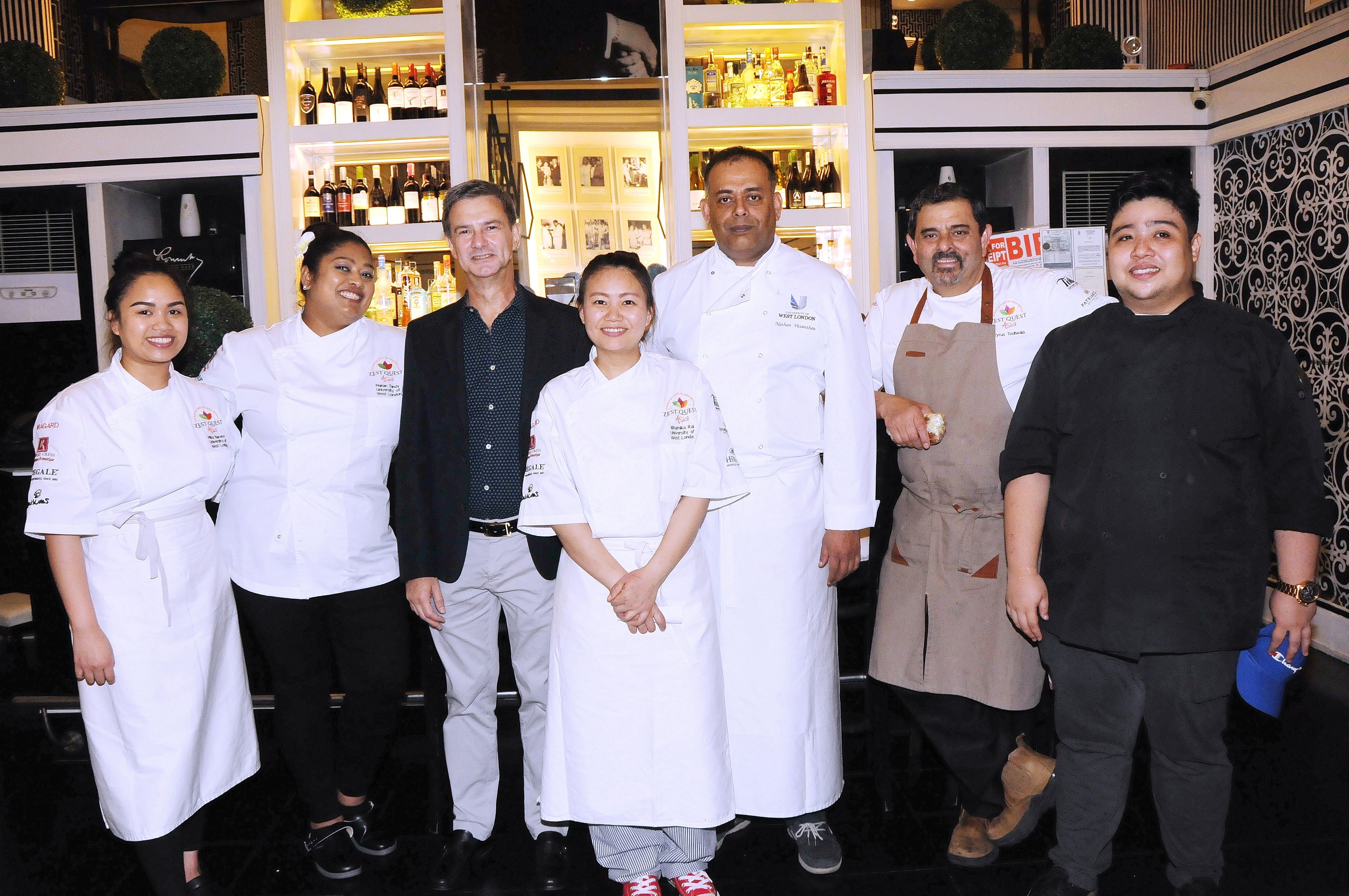By Bryle B. Suralta

When Chef Cyrus Todiwala and his wife, Pervin, co-founded Zest Quest Asia, the primary goal was to “raise the profile of Asian cuisine and cookery as a future career for budding chefs in Britain.” Now, after six years, one of Britain’s most prestigious culinary competitions finds itself in the Philippines, as its winners, the team from the University of West London, take a closer look at Filipino food and culture.
“I was always determined to make young British budding chefs look at Asian food as a career choice,” Chef Cyrus says. “What is happening is that British people are able to try a wide range of cooking, but there are no young British students who are interested in looking at Asian food as a career. That’s what we want them to do.”
Easier said than done, of course. After all, Asia has 48 countries. And it’s hard to shine the spotlight on each country’s culinary culture. In fact, in the western world, Asian cuisine can also sometimes be confused for one another, with popular elements from Japanese, Thai, Korean and Chinese dominating the globalization of Asian flavors.
The Philippines, however, has a rather complex story behind its cuisine–one that weaves together years of colonial influences and homegrown, exotic taste. Even Chef Cyrus can see it.
“When you look at Filipino food, you got Spanish culture, Malay culture, Chinese culture, Thai culture, maybe Vietnamese because of the soups and the broth. There’s an influence of Japan as well, and British culture and American culture,” he explains.
Some people abroad might find Filipino dishes rather too sweet or too salty, as well. And Chef Cyrus is one of them. He remembers eating at a Filipino buffet in London that put his “clean palette” to the test.
“The most striking is that you all eat too much sugar,” he shares. “All over the world now, they don’t want people to eat sugar. They are taking away sugar—eating less and less sugar, less and less salt. A little bit of sugar, [and] it becomes sweeter, stronger.”
Although, he’s not too big to admit that he loves ensaymada and turon, as well as bibingka, which was served as part of the fundraising dinner for Zest Quest Asia and local Philippine educational charity The Foundation for Professional Training, Inc., sponsored by Romulo Café Makati. The menu for the evening was prepared by Chef Cyrus and Romulo Café Executive Chef A-1 Jarius Alexis Rebueno.
Still, he considers the country to be one of the best destinations in the world for food and flavor. Among the reasons he loves Filipino cuisine is because of the precision Filipinos put into their dishes. “There’s a lot of sophistication, which I did not know,” he admits. “There’s a lot of perfection, pride.”
He cites the sisig as the perfect example: “Sisig is sophistication. There is a pride in how that egg is cooked. Sisig can also be a poor man’s food.” The chef then waxes rhapsodic about Denlim’s Kitchen in Pampanga, which was part of the seven-day trip the Zest Quest Asia champions won, and how the chef slow roasted the pork belly and tossed in noodles to give the classic Filipino dish a twist.
This showcases one of the great things about Filipino food, according to the chef. He underscores how Filipino dishes are derived from outside influences and different cultures to create enhanced variations. Such as the case with Denlim’s sisig, which added a bit of “Chinese” influence to it, creating a new dish altogether.
But, of course, he stresses the importance of the foundation. Whether its the Goan-Influenced Binagoongan Baboy with Fried Eggplant and the Chicken Adobo Confit served at the fundraising dinner or the sisig and his own version of bibingka, he always preaches “going back to the basics” first before breaking and manipulating culinary rules and recipes and expanding and enhancing taste palettes.
Notably, among the three-person team that won Zest Quest Asia is a Filipino by the name of Mika Narciso. Mika and other Filipino chefs, Chef Cyrus believes, are the key to the globalization of the Filipino brand of cooking. “I hope there are more chefs in the Philippines that want to do that (Filipino cuisine), not look at Japanese or Chinese or French, but to look at Filipino food and make it better,” he says.

With the UK-wide competition going on its seventh year next year, he’s optimistic about the future of Asian cuisine in Great Britain, as well as for the future chefs who are going to be serving them. Of all things to be considered in the competition, from the menu and the extensive research behind the dishes to the “ethical issue” of each of them and their sustainability, he still feels like there’s something grander to be explored.
“There’s so much to look at. And that is the idea of the whole competition—to make them look and make them think that, ‘Hey, I don’t have to make fish and chips every day of my life,'” he concludes.





